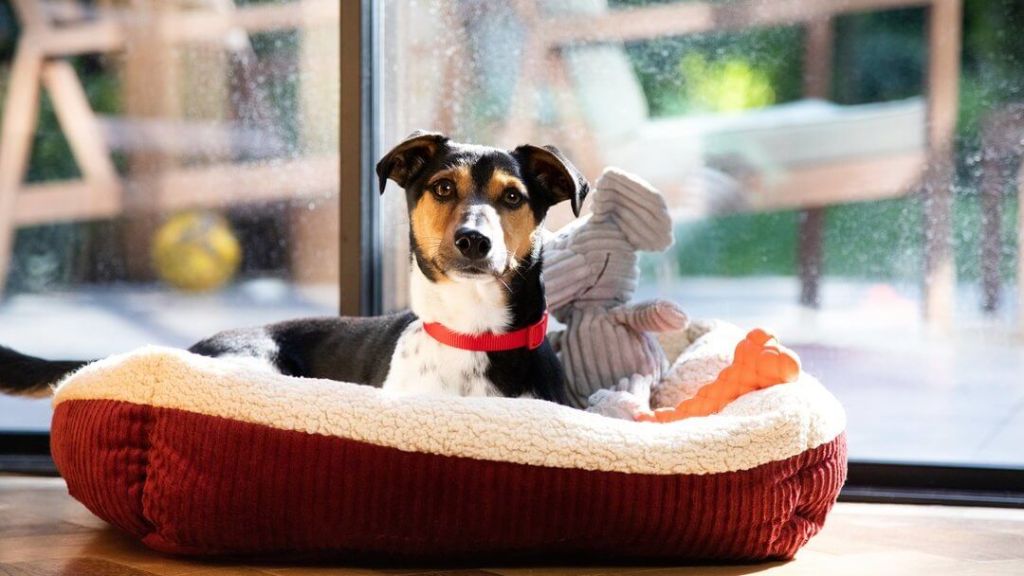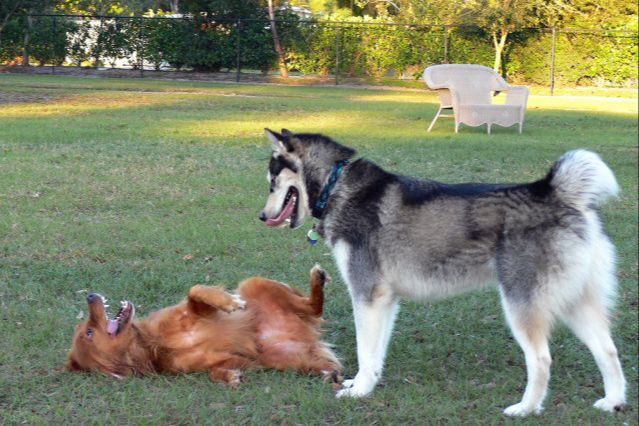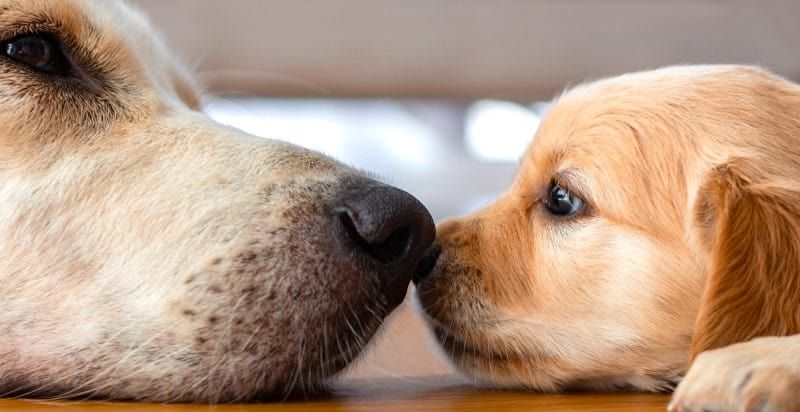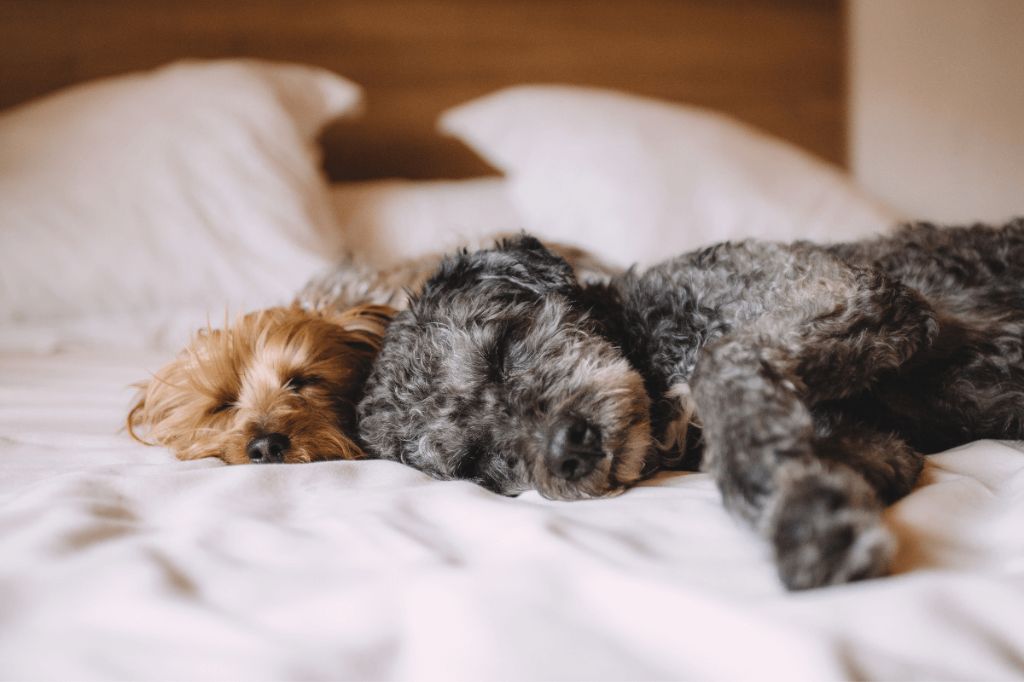Introduction
An alpha dog is considered the highest ranking individual in a pack of dogs. Within a pack, dogs establish a social hierarchy, and sleeping positions reflect each dog’s status in that hierarchy. The alpha dog is the leader who dominates the other dogs and has first access to resources like food, territory, and mates. The theory of the alpha dog was first put forth in the 1940s and posited that canine social groups function with a strict dominance hierarchy. More recent research has shown that dog packs are much more fluid in structure, and the alpha label may not accurately describe complex social dynamics between dogs.
This article will examine where alpha dogs tend to sleep within a pack and why their sleeping position reflects their status as leader.
Leadership Role
As the leader of the pack, the alpha dog takes on an important role in maintaining order and stability. The alpha sets the rules for the rest of the pack and enforces them through dominant body language and behaviors. This helps ensure all members of the pack work together harmoniously (Alpha Dog: Meaning and Concept Interpretation).
The alpha dog will reinforce its dominant status and leadership through behaviors like eating first, walking through doors first, claiming the best sleeping spot, and more. It keeps the other dogs submissive through aggressive behaviors if challenged. The alpha dog’s confidence and stable energy sets the tone for the whole pack.
While the alpha dog may use aggression to assert its role initially, a good pack leader keeps order through calmer authority once established. It provides a sense of security and guidance for the rest of the pack. This leadership prevents conflicts and reinforces cooperation among members.
Access to Resources
Alpha dogs are given priority access to important resources like food, prime resting spots, and even mates. Lower-ranking dogs will wait for the alpha to eat first before approaching communal food bowls. They also defer sleeping spots or mates to the alpha dog (https://www.cesarsway.com/dog-pack-hierarchy/).
This hierarchy is established and reinforced through body language and submission rituals. Lower-ranking dogs may show submission by avoiding eye contact with the alpha dog, keeping their head and tail low, licking the alpha’s mouth, or rolling onto their back to expose their belly (https://roguepetscience.com/blogs/dog-training/alpha-dog-meaning). They essentially communicate that the alpha dog has priority access. In return, the alpha allows the lower-ranking dogs to access the same resources once the alpha has finished. This minimizes conflict and maintains order in the pack.
Sleeping Positions
The alpha dog gets first choice of the safest and most comfortable sleeping area. According to Pets4Homes, “The alpha dog will generally choose the sleeping spot, and will get first choice over the best place and position to sleep.”
Prime sleeping spots that the alpha may claim include up high on furniture, in enclosed spaces like dog crates, under tables, and on soft surfaces like beds and couches. The Nest explains, “Pack animals tend to sleep together, but even in a big cuddle puddle, the best sleeping arrangements are left for the alphas.” The alpha dog will often sleep in the spot that allows them to survey the pack and remain alert.
While the lower ranked dogs may sleep in less ideal spots like the floor, they still typically want to be near the alpha for protection. Pets4Homes notes, “The other dogs will arrange themselves close to the alpha dog, but lower down and not in the prime positions.” Maintaining proximity reflects the social hierarchy within the pack.
Guarding the Pack
The alpha dog plays an important role in guarding and protecting the pack at night. As the leader, the alpha remains alert and keeps watch for any potential threats or danger. According to the American Kennel Club, the alpha dog will often position itself in a spot that allows it to survey the area and watch over the other pack members as they sleep 1.

The alpha is highly attentive to signs of predators or intruders during the night. Its protective instincts keep it on high alert for anything that could endanger the pack. Even while resting, the alpha dog continues scanning and listening for any disturbances. If a threat arises, the alpha will spring into action to defend its pack. It may bark warnings, confront an intruder, or shepherd the pack to safety 2.
This guarding behavior helps ensure the security and survival of the entire pack. The alpha dog’s strategic sleeping position and watchful nature allows it to respond swiftly and fulfill its role as protector.
Separation from the Pack
The alpha dog may sometimes choose to sleep separately from the rest of the pack. According to one source, “The alpha of the pack sleeps in the highest position. You assert your dominance by sleeping in your bed while your dog sleeps in their own bed…” (Source). The alpha dog may separate themselves to establish their position at the top of the hierarchy.
Additionally, the alpha dog sleeping alone demonstrates their independence and strength. By not needing the protection or company of the pack while sleeping, the alpha affirms their dominant role (Source). Separation also allows the alpha to keep watch over the pack and respond quickly to any threats. Overall, the alpha dog’s separate sleeping area highlights their leadership status.
Interactions at Night
Social interactions at night play an important role in reinforcing hierarchy within the pack. When settling down to sleep, more dominant dogs may display behaviors asserting their higher status, while more submissive dogs communicate deference through body language and actions.[1] Common submission displays include avoiding eye contact, keeping the head and tail low, rolling onto the back to expose the stomach, and licking the mouth of more dominant dogs.[2]

For example, the alpha pair often claims the highest sleeping area in order to survey the pack, while lower ranking members settle in gradually decreasing elevations. Subordinate dogs may wait for the alpha pair to choose their sleeping spot before settling into their own beds. They tend to avoid laying too close or above the alpha pair. To request permission before approaching at night, submissive canines may crawl on their bellies or avert their gaze.[3]
These submission rituals serve to maintain harmony and order within the pack at times when tensions run high, such as at night when the pack is confined in close quarters. The alpha pair reinforces its status through these interactions without needing to resort to overt aggression or force.
Sources:
[1] https://www.rover.com/blog/alpha-dog-meaning/
[2] https://www.whole-dog-journal.com/behavior/alpha-dog-myths/
[3] https://news.asu.edu/20210805-discoveries-myth-alpha-dog
Changes Over Time
As alpha dogs age, they often make concessions for younger rivals in the pack. According to vetstreet.com, instead of relying on dominance and force, aging alpha dogs may allow changes in pack structure to happen naturally if the transitions are peaceful. The alpha role requires a lot of energy to maintain, so senior dogs may relinquish some responsibilities as they get older.

Leadership transitions in a pack often happen gradually. The aging alpha may allow a younger, subordinate dog to take over certain duties like leading the pack during walks or guarding resources. According to alphagroomingpetsalon.com, physical changes associated with aging can start as early as 7 years old in dogs. So as the alpha gets older, they may become less interested in defending their top rank in the hierarchy.
While an aging alpha dog may make concessions, they still typically maintain their prestigious position in the pack. The younger rivals might take over some duties, but will continue showing submission and respect to the elder leader. So the alpha status is often a lifelong role, even as the dog ages and becomes less active in that position.
Exceptions
There are some exceptions to the typical alpha dog sleeping arrangements. According to a post on Reddit, some owners allow the alpha dog to sleep in bed with them to strengthen the human-dog bond and reinforce the owner’s dominant position [1]. However, this practice is debated, as some experts argue it can undermine the owner’s authority.
In wolf packs, the alpha pair often sleep together away from subordinates for bonding and protection. But captive wolf packs may alter sleeping arrangements due to habitat limitations [2]. Small dog breeds are sometimes allowed to sleep in the owner’s bed without dominance issues.
The alpha dog’s sleeping position can also depend on factors like climate, presence of puppies, and size of pack. Arrangements within feral dog packs likely differ from pet dogs due to different social dynamics and environments.
Conclusions
In summary, the alpha or lead dog in a pack sleeps in the most comfortable, protected, and advantageous position compared to lower ranking members. This allows the alpha dog first access to resources and the ability to guard or control the rest of the pack. Typically the alpha dog will sleep in an elevated area which provides both warmth and allows them to survey the surroundings. Often they sleep separately from the rest of the pack or they position themselves closest to the den entrance. The alpha dog may change their sleeping position over time as the hierarchy shifts or as the needs of the pack change. While most packs follow these general principles, there are exceptions based on breed, environment, human influence, and other factors. Nevertheless, a pack has an established social structure and sleeping positions reflect an alpha dog’s dominant role.
To conclude, the alpha dog in a pack sleeps in the most optimal location apart from lower ranking members, allowing them to access resources, provide protection, and demonstrate their leadership. This is usually an elevated, warm, and protected spot near the den entrance that lets them survey the surroundings and control the pack.

